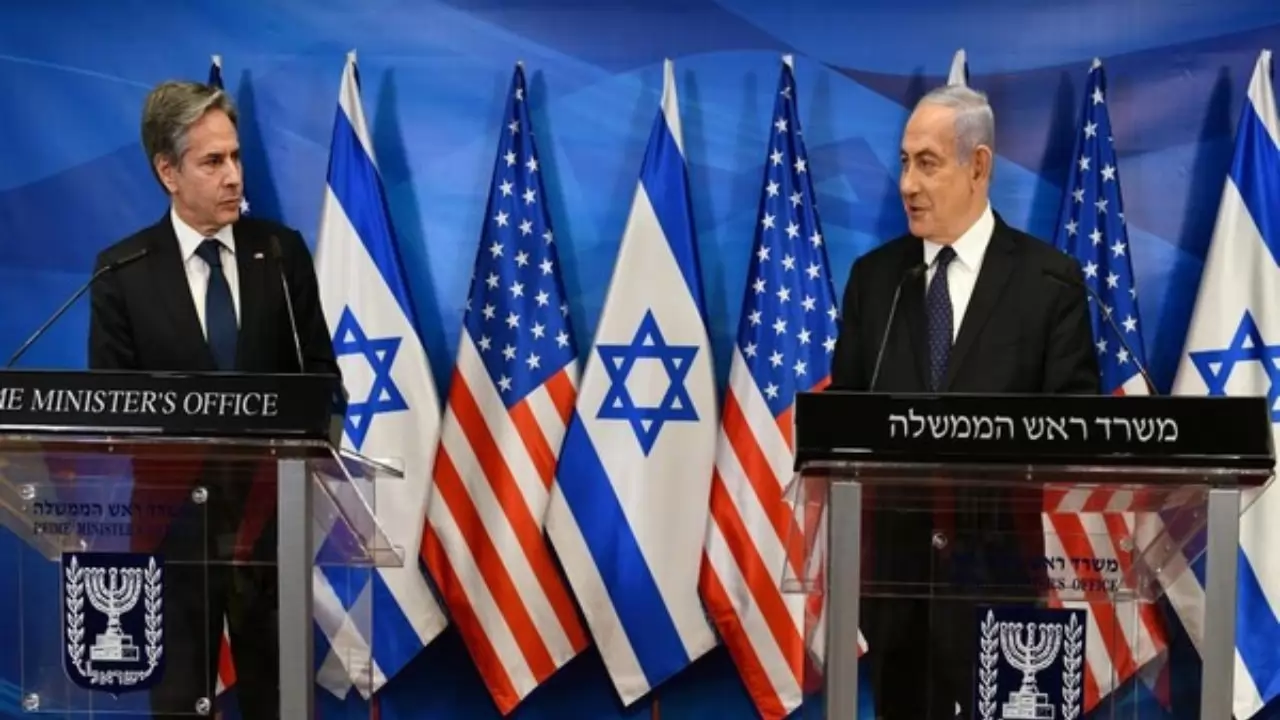
ANI
US Secretary of State Antony Blinken arrived in Israel Wednesday to push for a 'humanitarian pause' in the ongoing conflict between Israel and Hamas in Gaza, amidst mounting international and domestic pressure.
After discussions with Israel Defense Forces Chief of Staff Herzi Halevi and other key officials, Blinken met with Israeli Prime Minister Benjamin Netanyahu for over an hour in Tel Aviv. He also plans to travel to the West Bank during his visit. The visit comes as Hamas presented a three-phase proposal for a ceasefire and release of hostages, offering potential grounds for diplomacy.
Prime Minister Benjamin Netanyahu met today with US Secretary of State Antony Blinken, at the Prime Minister's Office in Jerusalem.
— Prime Minister of Israel (@IsraeliPM) February 7, 2024
PM Netanyahu and @SecBlinken first held a lengthy, in-depth private meeting, and are currently holding an expanded meetinghttps://t.co/lav5U0u7bi pic.twitter.com/wsAIBYRGIt
Blinken's primary objective is to convince Israel to implement a 'humanitarian pause' to alleviate the severe humanitarian crisis in Gaza, where the Israeli offensive has caused extensive casualties and pushed the population towards famine. This ceasefire is seen as crucial for achieving both immediate and long-term goals.
Meanwhile, the Biden administration faces criticism in the US for its handling of the Gaza situation, especially considering the toll on civilians and the potential political damage during an election year. The Secretary's visit aims to address these concerns and present a pathway towards a ceasefire.
The discussions are expected to be challenging as Netanyahu has previously rejected calls for a ceasefire, insisting on continuing the offensive until Hamas leadership is eliminated. Moreover, the issue of civilian casualties remains a sticking point, with humanitarian organizations fearing further escalation as the conflict intensifies. It will be interesting to find a common ground for the immediate and long-term goals.
Blinken has emphasized the need for 'difficult' decisions from the Israeli government, including progress towards a two-state solution and involvement of the Palestinian Authority in post-war governance. It also aligns with the demands of Saudi Arabia and other regional allies, whose support is crucial for normalization and reconstruction efforts in Gaza.
While significant differences remain, Blinken's visit will renew the diplomatic efforts to end the conflict. These efforts will lead to a successful ceasefire and pave the way for a lasting peace remains to be seen.





Copyright © 2026 Top Indian News
